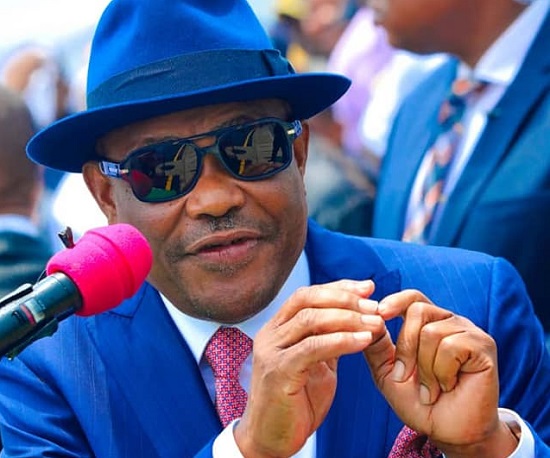Why FCT should never be a state
When Nigeria returned to democratic governance in 1999, a new crop of “professional politicians” emerged. Nyesome Wike was one of them. Elected chairman of Obio/Akpor Local Government in 1999, he has been on in the past 25 years as an LGA chairman, chief of staff, minister of state, governor and now Minister for the Federal […]

When Nigeria returned to democratic governance in 1999, a new crop of “professional politicians” emerged. Nyesome Wike was one of them. Elected chairman of Obio/Akpor Local Government in 1999, he has been on in the past 25 years as an LGA chairman, chief of staff, minister of state, governor and now Minister for the Federal Capital Territory (FCT).
As both local government chairman and state governor, he controlled massive budgets as his local government is one of the richest in Rivers State, which is itself one of the richest in the nation.
He has now joined the All Progressives Congress (APC) administration of President Bola Tinubu as minister for the FCT.
Now that time has passed and tensions have reduced, it’s important to examine, devoid of emotion and political chicanery, Section 134(2) of the Constitution and set the record straight on Abuja’s status and the role of the Minister for FCT. Even though the FCT isn’t a state, the Supreme Court of Nigeria recognises it as one for the purposes of elections. Unfortunately, at the time, many unqualified “legal analysts” misinterpreted the constitution and deceived people by widely publicising their wrong interpretations as if they knew what they were talking about!
FCT council chairmen handling teachers’ welfare with levity – NUT chair
Prices of tomatoes, other perishables soar in FCT markets – Survey
Abuja is not a state. States are administered by a Governor, Deputy Governor, Secretary to State Government, Chief of Staff, Head of State Civil Service and Commissioners who preside over ministerial departments along with Special Advisers and assorted aides. The constitution gives governors virtually unrestricted executive powers and immunity from prosecution. Are those who say that the FCT is like every other state, implying that the Minister of the FCT is similar to a governor? Does it mean that the current FCT minister has breached the constitution by being governor of more than one state?
Section 299 of the Constitution states clearly that “All the legislative powers, the executive powers, and the judicial powers vested in the House of Assembly, the governor of a state and in the courts of a state shall respectively be vested in the National Assembly, the President of the Federation and the Courts.” there are no references to the powers of the minister.
On December 31, 2004, following the scrapping of the Ministry of the Federal Capital Territory (MFCT), President Obasanjo created the Federal Capital Territory Administration (FCTA) as the ministry that administers the FCT headed by a minister who is appointed by the president. To further assist the administration of the FCT, the Abuja Metropolitan Management Council (AMMC) was created in 2010 to be responsible for the efficient running and operation of municipal services within the FCT.
Considering the plethora of agencies running the FCT a bill was sponsored in the House of Representatives in 2019 seeking to remove the president as chief executive officer of the FCT and replace him with an elected mayor who would administer the FCT as a chief executive. The 1989 constitution had made provision for the creation of the office of Mayor for the FCT. Article 315 of that constitution provided that “a mayoralty comprising four area councils shall be created for the federal capital territory.”
There is no doubt that the commitment of a mayor will be more than that of a proxy governor in the person of a minister. An election was conducted into the office but was annulled by the Babangida regime. There are those who support statehood for FCT because they feel a mayor would simply be a glorified local government chairman.
However, the FCT should never become a state because its purpose of being a centre of unity where everyone will supposedly find a home would be defeated if it were turned into a northern state. Washington DC in the US is similar to Abuja in that it was designed from the beginning to serve as the capital. Since 1800 there have been calls for Washington DC to become a state but the situation remains the same.
There is an obvious contradiction in the constitution on the status of the FCT and the powers of the president to appoint a minister to administer it. When an administrator is appointed, his loyalty will be to the person who appointed him and not to the citizens. The question arises as to whether or not the administration of the FCT is just, reasonable and sensible. It has been suggested that Abuja municipality should be mapped out as the nation’s capital and other parts of the FCT returned to the states they were extracted from. It is indeed unjust, unreasonable and insensible for courts to recognise the FCT as a state for the purposes of elections, but not give citizens the right to vote on who conducts their affairs.
